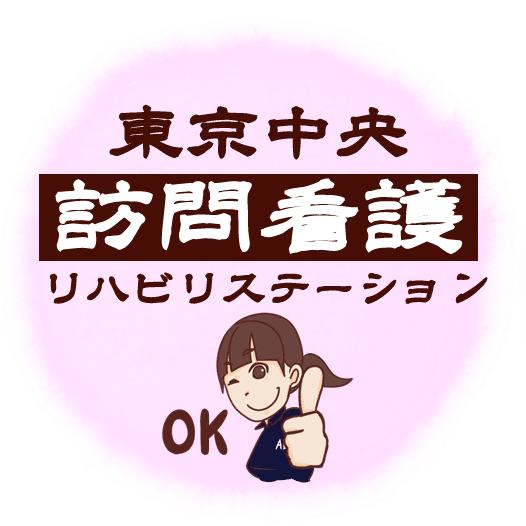From the DJ booth, man with ALS taps into tech to brighten future for all
The Japan Times 2018/08/14
Masatane Muto slowly maneuvers the controller on his power wheelchair with his right hand to move around his Tokyo office.
He can barely move his body on his own and needs the help of a colleague to take occasional sips from the straw in his drink.
But the 31-year-old has a mission to accomplish and nothing will stop him from going forward, not even an incurable illness that has robbed him of control over his body.
Muto has amyotrophic lateral sclerosis (ALS), a progressive neurological disease in which motor nerve cells for controlling voluntary muscle movement are damaged. The condition causes people with ALS to gradually become unable to move, while their senses and consciousness remain intact.
He was diagnosed with the illness nearly four years ago. Since then he has set up an organization to promote information about ALS, launched a clothing brand featuring fashionable yet functional and easy-to-wear outfits, and carried out various activities to improve the quality of life not only of fellow ALS patients but also of other people, with or without disabilities.
“I started having symptoms of ALS when I was 26. That was when I was working in advertising communications, a job that I felt was my true calling. I still clearly remember how shocked I was that I became ill in my prime,” he said during a recent interview with The Japan Times.
Muto, a southpaw, first felt numbness in his left hand and had difficulty using chopsticks or writing with a pen. It took a year and many hospital visits before the diagnosis was finally confirmed by a doctor at an institution in Sendai where he visited to seek a second opinion.
Although the news was devastating, he picked up the pieces and put his thoughts together during the two-hour shinkansen ride back to Tokyo.
“Even if it was just pretending to be tough, I wanted to return to Tokyo having put my feelings behind and looking forward,” he said of the trip with his stepfather.
“I remembered that since my college years I’ve had this vision of turning ideas for making the world a brighter place into reality. When I was a student I planned events based on this vision, and after I joined an ad company I was also making such ideas take shape as my lifework. Then I got to thinking that my current mission as a person with ALS was to help realize ideas that would make the future of people with disabilities brighter.”
Although his determination was partly a ploy to convince his family, wife-to-be and friends that he was OK, it would soon develop into full-fledged efforts to raise awareness about ALS, also known as Lou Gehrig’s disease, named after the legendary American baseball player who succumbed to the illness in 1941 at age 37.
“The only thing I know how to do is communications,” said Muto, who was working as an ad man at Hakuhodo Inc. when he was diagnosed in October 2014, the same year the ALS Ice Bucket Challenge began in the summer to raise awareness and funds. “So I started by using the power of communications, like informing society about ALS — an illness that doesn’t even have a remedy yet — and raising funds for research and development of medication.”
He launched the WITH ALS project the following year and turned it into a general incorporated association in 2016.
Muto focuses on utilizing technology to enhance the quality of life for people with ALS and their families — something that can also be applied to those affected by other illnesses, disabilities or hardships.
He collaborates with Kentaro Yoshifuji, an engineer who runs OryLab Inc., to help improve the functions of an avatar robot called OriHime by using it himself.
Standing a little over 20 cm tall and weighing less than 600 grams, the robot developed by Yoshifuji is equipped with a microphone, speaker and camera, allowing users to communicate with people far away.
Muto uses it often to “virtually” attend events or meetings across the country. OriHime is dispatched on his behalf and Muto can see the image of the venue and speak through the robot. The device is also expected to be used for telecommuting, a concept that could give people with disabilities more freedom to work.
Technology also allows Muto to perform as a disc jockey and video jockey using his eyes, an activity he refers to as “EYE VDJ.”
The black-framed glasses he wore on top of his head during the interview are a wearable device called Jins Meme that, together with an app, enables users to operate software and electronic equipment — including smartphone cameras, air conditioners and room lights — with eye movement.
“With ALS, the movement of the eyes is said to be the last to go, so we’ve developed an app utilizing this Jins Meme device,” he said. “I have been conducting performances as a DJ and VJ with these glasses and my eyes. By doing so, I am helping advance this technology so that the app can be improved and better support people in their daily lives.”
Muto said details of how the Jins Meme Bridge app was developed with eyeglasses company Jins Inc. and others have been made public to promote open innovation so that engineers in Japan and abroad can offer ideas to increase its functions.
“There have been people with disabilities, particularly those with ALS, around the world who have communicated using their eye movement, but until now it was for conveying just the minimum necessary thoughts,” he said. “But whether with ALS or not, everyone should have freedom of expression. We are developing this app technology to enable people to communicate based on the idea that daily communication is a standard for all.”
Amid his aspirations and goals, Muto is aware of what is to come for him.
About 350,000 people around the world are estimated to have ALS, some 10,000 of them in Japan. It often strikes people in their 50s to 70s. The causes are not known and people with ALS are estimated to live three to five years after symptoms appear, although there have been cases of much slower progression of the disease. Renowned British physicist Stephen Hawking, who was diagnosed with ALS when he was 21, died in March at age 76.
People with ALS gradually lose their motor functions, including the ability to produce sound with their vocal cords, swallow food and, eventually, breathe. At that point they need to undergo a tracheotomy and have a ventilator installed to prevent respiratory failure, but not many opt to take this life-prolonging procedure.
Muto, who is relatively young for someone who has ALS, has decided to go through with the surgery when it becomes necessary, possibly by the end of this year or early next.
“Now that I’m in this situation, I am painfully aware of the dilemma as to whether to live or die, whether to go through with this life-prolonging surgery or not. That’s why I want to make the best of this realization and continue transmitting information that will help as many people as possible have hope for the future,” he said.
In June, Muto published his first book, “Keep Moving — Living without Limits,” in which he candidly describes his experiences and feelings about his illness. It includes sections where his wife, mother and stepfather share their thoughts. Part of the proceeds goes to the Serika Fund, which supports research to seek effective treatment for ALS.
With the Tokyo Olympics and Paralympics just two years away, one of his goals now is to take part in an opening ceremony as an EYE VDJ performer and collaborate with, for example, a wheelchair dancer or a blind drummer.
“I don’t think anyone can live alone. I’m an obvious case because I can basically move my eyes only, so what I need to do is work with others to express a world of our own,” Muto said. “No matter what disabilities people have, they can connect without any borders when they’re on stage together. It’s my dream to participate in the 2020 Games.”
仲間募集中
週1回1時間から働ける柔軟で明るい職場で、子育てママや社会人学生も在籍。
すぐに考えていないけれど、少しでも御関心があれば、とりあえず雑談させて下さいませ。


